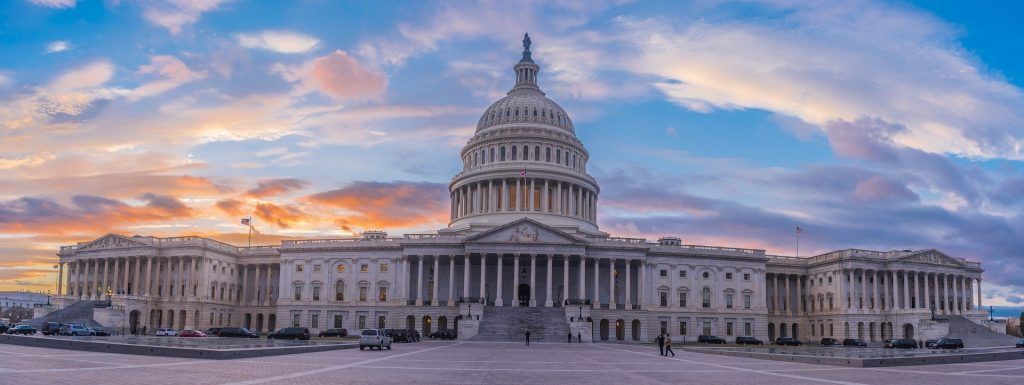Riots in the Capitol. Is this who we are?
By Adam Sobel | January 8, 2021
 Image courtesy of Dawit Tibebu, Pixabay
Image courtesy of Dawit Tibebu, Pixabay
“This is not who we are.” Republican Congresswoman Nancy Mace said this on Twitter as she evacuated her office in the face of the hostile takeover of the Capitol on Wednesday. Similar sentiments have been expressed since then by many government officials who had been steadfast supporters of President Trump for the last four years, including a substantial fraction of his Administration itself. Essentially the same phrase was also used by President-Elect Biden on Wednesday evening, saying the “scenes of chaos at the Capitol … do not represent who we are.”
In either case, the only response that seems to me free of delusion is, “Who is ‘we’ ”?
Trump had telegraphed his intentions far in advance—in broad outline, starting before he was elected, in 2016, the first time he refused to commit to accept the outcome if he lost, and much more specifically in the past few weeks. And while the Republicans now seeking to disassociate themselves may not have specifically endorsed the actions of the insurrectionists, most endorsed Trump’s false, evidence-free claims of election fraud, either tacitly, through their silence, or overtly. And the majority of Republican Representatives in Congress held onto those lies, through their objections to the certifications of the electoral votes, even after the attack. It’s too little, too late now to disavow those who just took these lies a bit further towards their logical conclusion.
And of course the lies about the election followed years of lies—toxic, racist, divisive lies—about nearly everything else, from the President and his associates, with little pushback from others in his party.
And not just lies, but bullshit too. The philosopher Harry G. Frankfurt defines a liar as someone who consciously says something that isn’t true, whereas a bullshitter is indifferent to the truth. Trump does both, depending on the situation, with a confidence that takes advantage of the fact that very few people can do either one as shamelessly as he does. That swagger itself, combined with the aura of wealth and power, convinces many, apparently.
While Trump may have mastered this behavior, he didn’t invent it. The seeds were planted in the climate denial movement, where doubt was manufactured, taking cynical advantage of science’s own practices of self-criticism and skepticism, to blunt popular support for regulation of the fossil fuel industry. That was so effective that the same tactics then got applied to everything else, with the same asymmetry: as the mainstream media largely stuck to their good-faith practice of considering “both sides” of every issue—slowly learning to call a lie a lie only belatedly, over the course of the last four years—the right-wing media showed no such compunction. It has told its audience not to believe the mainstream media, science, academia, “elites”—more or less anyone but Trump. QAnon has taken this to yet another level.
I have had conversations with colleagues, even very recently, who have argued that we need to communicate our science better in order to convince more Americans that global warming is a serious problem. I think these colleagues are kidding themselves. If someone believes that all Democrats are Satan-worshipping pedophiles, will they listen to anything climate scientists say, no matter how we say it?
Many Republican politicians believed, apparently, that the constant assault on truth could be tolerated, in the service of their political aims, without believing the actual nonsense Trump said. (I’m convinced most of them believe global warming is a real problem, for that matter; they just don’t want to talk about it.) And maybe some of the 74 million people who voted for him in November thought that way too. But the evidence is that most of them, ensconced in the right-wing media bubble, believed the lies.
After Wednesday’s attack—and the Democratic takeover of the Senate after the Georgia runoffs—more GOP politicians are recognizing the cost of what they’ve wrought. While their last-minute conversions don’t deserve much praise after the last four years, I’m nonetheless allowing myself a little hope that at least some of them might learn something from this. But the big question is what effect, if any, this shift will have on the 74 million Trump voters.
When President-elect Biden says this is not who we are, I hear him as telling the rest of the 74 million that he believes they don’t support the attackers. He is claiming that some degree of national reconciliation is possible. I hope and wish that he is right.
But prerequisites are a shared set of facts, a shared understanding of reality, a shared respect for some set of institutions that can referee what is true. Until we have that, I don’t know what “we” means.
Together, we make the world safer.
The Bulletin elevates expert voices above the noise. But as an independent nonprofit organization, our operations depend on the support of readers like you. Help us continue to deliver quality journalism that holds leaders accountable. Your support of our work at any level is important. In return, we promise our coverage will be understandable, influential, vigilant, solution-oriented, and fair-minded. Together we can make a difference.
Keywords: 2024 election, Donald Trump, Trump, climate change facts, climate crisis, politics
Topics: Climate Change, Columnists, Opinion
















Yes, this is who ‘we’ are. Which is to say, what a horrifically significant percentage of the American population is. Willfully ignorant, narrow, bigoted, violent and nightmarishly tribal. Still just apes, barely off the veldt, holding nuclear arms instead of bones over everyone’s heads. Following a deranged Grayback who displays a primal dominance they admire.